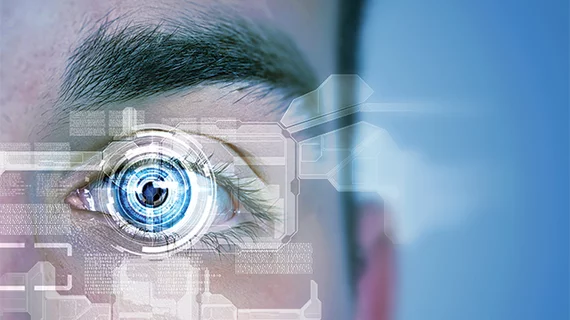AI can accurately diagnose eye disease
An artificial intelligence (AI) system designed by Google's DeepMind and London researchers can diagnose eye disease as accurately as some experts, according to a report by the BBC.
According to the BBC, a study found that the system could learn to read "complex eye scans and detect more than 50 eye conditions."
The research team created an algorithm that allowed a computer to analyze optical coherence tomography. The system was then asked give a diagnosis in 1,000 cases whose outcomes were already known. Eight clinicians were also asked to look at the same cases and make a referral.
The system made the right referral in more than 94 percent of the cases it reviewed.
"Artificial intelligence performed as well as tow the world's leading retina specialists, with an error rate of only 5.5 percent," the report said.
Pearse Keane, MD, who lead the research tearm, described the results as "jaw-dropping" to the BBC.
"I think this will make most eye specialists gasp because we have shown this algorithm is as good as the world's leading experts in interpreting these scans," Keane said in the report.
To read the full story, click the link below:

